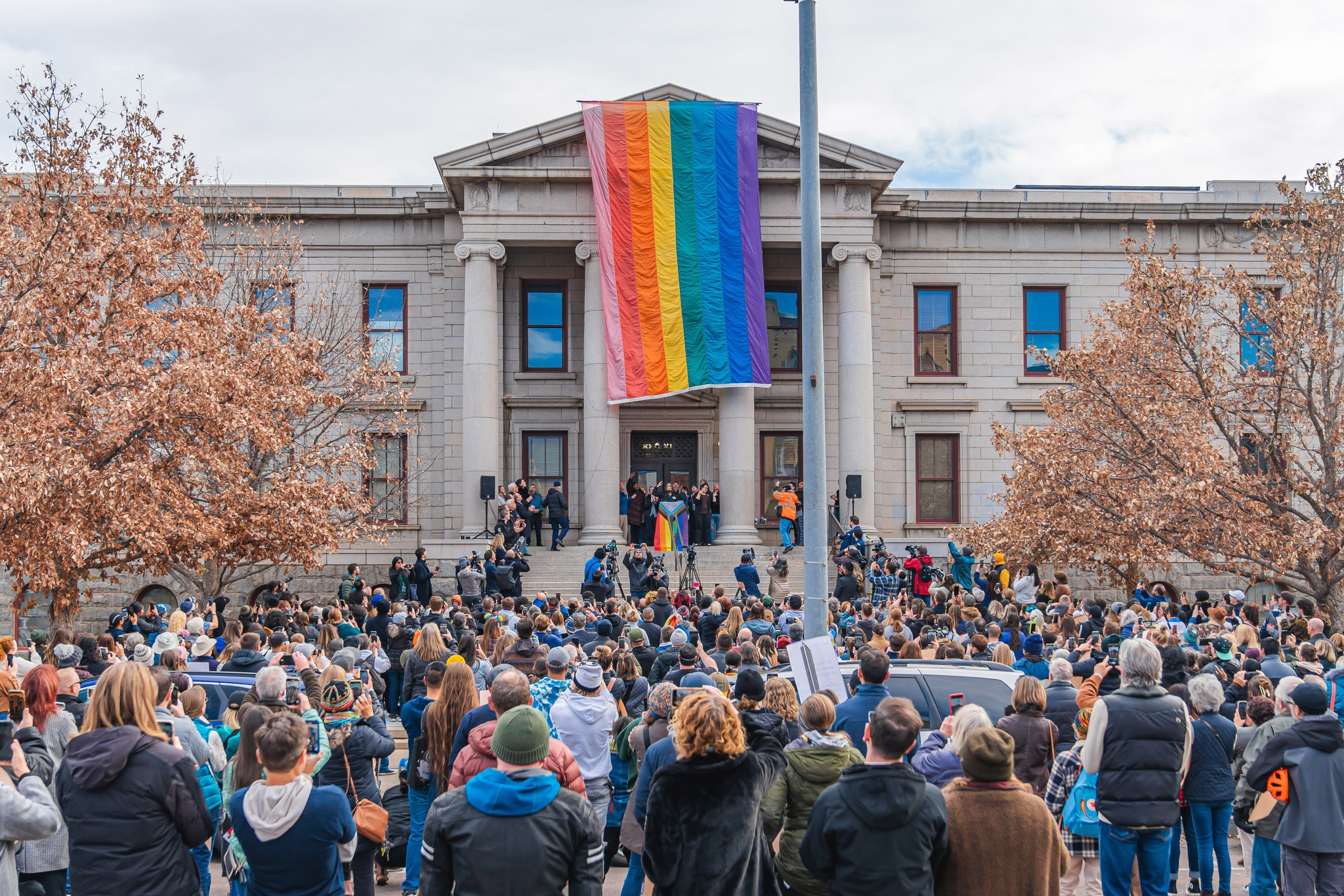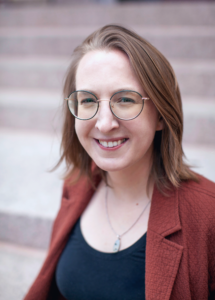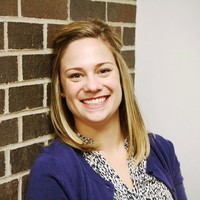
A community center focusing on the LGBTQ+ population is set to open this fall in Colorado Springs.
The Prism Community Collective will provide access to resources, like mental and physical health providers, using federal funds secured following the shooting at Club Q. The center will provide both immediate and long-term support to survivors and victims’ families as well as the general public.
KRCC's Abigail Beckman spoke to Rachel Keener with the Community Health Partnership, one of the groups behind the push for the center.
Highlights from the interview, edited for length and clarity.
On the timing of the effort to start an LGTBQ+ community center

When a community goes through something like Club Q, they can apply for a federal grant from the Anti-Terrorism Emergency Assistance Program (ATEAP), and what that does is allow an organization or group of organizations to stand up for mental and behavioral health, peer support, and other supportive services for a community after a shooting. This grant can only be used for this type of support and we are committed to not taking funds for this effort that could go to support the financial well-being of survivors directly.
That was the catalyst, for exploring whether or not there was a need for this resource and whether or not it was feasible.
The grant funds everything from staff, computers and mouse pads to rent utilities. It's around $1.7 million a year, for three years, so for a community center budget, it's a little bit tight. I am so happy and just pleasantly surprised with the clinical providers – Peak Vista, Diversus Health, NAMI – who are really stepping up to say, "Regardless of what's funded in this grant, we want to be supportive of this project in the best way that we can and make sure these folks are served."
You cannot reapply for the grant after three years, but if folks find this resource useful and want it to stick around, it is my personal goal and our partners' goal to make sure that this can be sustainable moving forward and we don't stand something up and then just drop it away. I'll say that it does allow flexibility where if we stand up this resource and it is not what this community needs that allows us to adjust from when the grant is over, which is the end of 2025.
On community research and how it will inform the center's services
Prior to the shooting at Club Q, CHP had a needs assessment planned to get some data on how LGBTQ+ folks, and especially transgender and gender-expansive people, were accessing healthcare in our community. After the shooting, we added a couple of questions on resource needs, community center desires, and what people would want to see.
We got back what we were expecting in that the disparities for access to both mental and physical healthcare and resources in Colorado Springs are really lacking for this community.
- 43 percent of LGBTQ people in El Paso County did not have a primary care physician at all.
- 60 percent of folks who wanted a mental health therapist didn't have one, citing being afraid of being outed, rejected, or not knowing how to find an affirming therapist.
- 61 percent of folks who need gender-affirming care, like hormone replacement therapy, don't have access to it at all.
- 38 percent of folks who do [have access to gender-affirming care] have to travel 60 miles or more just to get basic hormone support.
The data shows a really significant portion of our community just doesn't have access to care.
"This grant can only be used for this type of support and we are committed to not taking funds for this effort that could go to support the financial wellbeing of [Club Q] survivors directly."
Rachel Keener, Community Health Partnership
On guidance and best practices
There are best practices and experts who have been so helpful in walking us through this journey, and there is some good support on the benefits of a community center after a tragedy like this and bringing people together. There are also a lot of criticisms around how those institutions are funded, their use, their longevity, and how sustainable they are as a resource.
From the beginning, we have had what we've been calling a community advisory board – a group of providers, members and now survivors and some families of victims – to help steer the direction of the space. The goal is really creating a space for people to show up, be in community, have everything from open mic nights to art space, to access to no-cost clinicians.
It really is a choose-your-own-adventure to start and I think we'll see as we go along, what resources are needed that we don't have, what is utilized, what's not utilized, and adjust accordingly.
On plans for security and safety
We are working with our property manager to install basic security measures – cameras, magnetic doors – what you would expect in a community center space. There are a lot of trauma-informed and secure design principles that we can apply to this and we are leveraging the expertise of folks whose job it is to think through that. We are also going to let the Club Q survivors who are on our community advisory board direct how we want this to look and what the layout will be.
I have learned a lot from the survivors who have been gracious enough just to spend time in this space with us and talk with me about their experiences. LGBTQ+ people, especially transgender and non-binary folks, are used to keeping themselves safe and are good at keeping the community safe. That really is the spirit of the folks who are behind this work.
We have a responsibility to make sure that everything within our power and control is done, as far as door access, security measures, emergency plans, all of the above.
On the significance of the name Prism Community Collective
Prism [refers to] colors, refracting light, the diversity of this community.
The community collective portion highlights the collaborative effort between CHP, our community partners, our ever-expanding list of community members and smaller organizations who are involved.
What we are looking to do is make sure that folks can access resources through this space and by bringing in these partners and having them do work with this community under the umbrella of Prism, that will allow us to make sure that regardless of where you're accessing mental or physical healthcare or peer support services in this town, we are working to make sure that LGBTQ+ people have a good experience.








